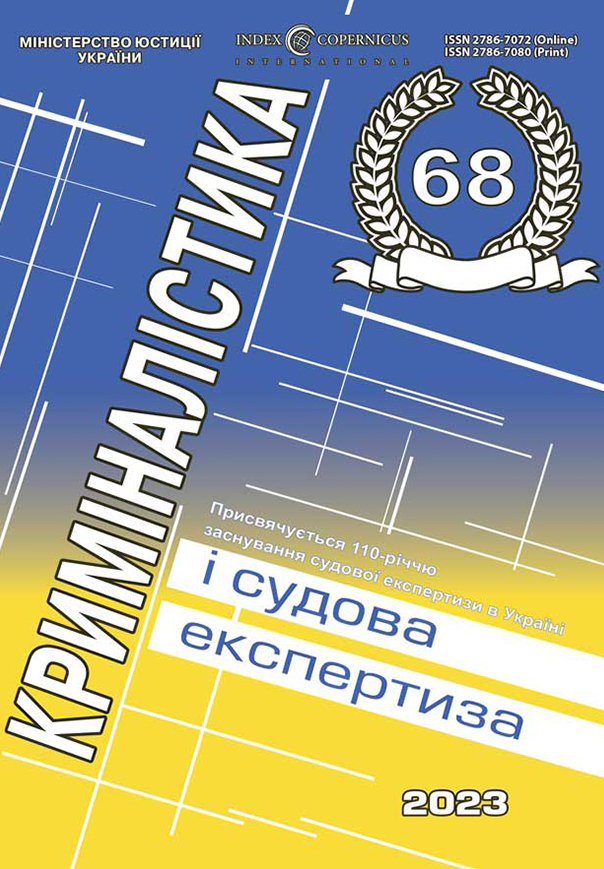
DOI: https://doi.org/10.33994/kndise.2023.68.60
N. Kisil
The article is dedicated to identifying key paradigms that can be used in implementing competency-based approaches in the training and certification of forensic experts in the intellectual property field.
It is noted that the basis for practical activities in the field of forensic examination of intellectual property objects is applying the knowledge acquired by specialists for theoretical, procedural, and organizational provisions of forensic examination; mastering intellectual property rights’ legislative framework, basic theoretical and methodological knowledge of forensic examination in the field of intellectual property; acquisition of skills in applying methodological approaches for solving expert tasks during training (internship).
The approaches are highlighted to determine the types of professional competencies of forensic experts and specialists involved by the court, pre-trial investigation authorities, or other parties to the case in conducting forensic examinations.
It is proposed to divide the components of forensic experts’ competencies in the field of intellectual property into 3 main types: general competencies, special (professional) competencies in the field of intellectual property, and special (subjectmatter) competencies in a particular expert specialty. General and special (professional) competencies in the field of intellectual property can be applied to experts who are certified in all areas of forensic examination in the field of intellectual property. At the same time, special (subject-matter) competencies for each expert specialty should be defined, considering the content of the topics specified in the approved expert training programs.
The position is expressed on the expediency of granting forensic experts the right to choose the method of acquiring professional competencies independently.
Key words: expert, intellectual property, training of forensic experts, professional competencies of forensic experts, forensic science.










